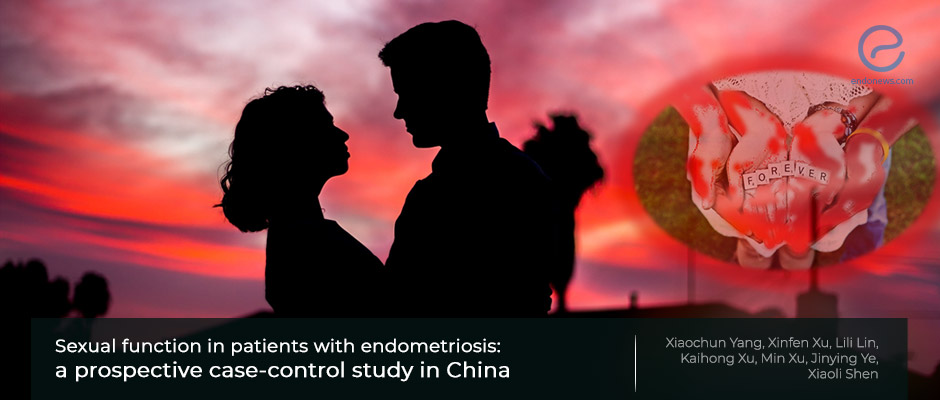The endless burden: sexual dysfunction and endometriosis
May 28, 2021
The silent sexual life killer: endometriosis
Key Points
Highlights:
- Patients with endometriosis revealed a lower level of sexual arousal, satisfaction, and Female Sexual Function Index in comparison to women without endometriosis.
Importance:
- The quality of sexual life in endometriosis patients needs to be improved.
What's done here:
- The present study is a prospective case-control research performed between September 2017 and August 2018.
- Inclusion criteria were the presence of stage 3-4 endometriosis, being between 20-50 years, having had sexual intercourse in the last 4 weeks, and the absence of psychological disease.
- Healthy volunteers without any systemic disease were enrolled in the study as the control group.
- Demographic characteristics were recorded for all patients and healthy volunteers.
- The validated Chinese version of the Female Sexual Function Index form was filled by two groups, and these groups were compared.
Key Results:
- Totally 77 patients with endometriosis and 63 healthy volunteers, comparable in terms of age, education level, marital or fertility status, were enrolled in the study.
- The total Female Sexual Function Index score was 25.5 in patients with endometriosis and 26.7 in control group, the difference was not statically significant.
- Analysis of Female Sexual Function Index dimension scores revealed that patients with endometriosis had significantly lower levels of sexual arousal and satisfaction scores.
- The comparison of women with endometriosis and healthy participants revealed that the presence of endometriosis did not significantly affect sexual desire, vaginal lubrication, and orgasm.
- The comparison of the groups by age range, sexual arousal, and pain scores were significantly lower in endometriosis patients aged between 31-40 years
Strength and Limitations:
- The prospective nature and the examination of the quality of sexual life of women, that may be taken a cultural taboo makes this study innovative.
- A relatively small patients number can be considered as a limitation.
- The study evaluated data from single-center, and long-term results are lacking.
Lay Summary
The relationship between endometriosis and sexual health in women is one of the hottest topics in obstetrics and gynecology practice.
There are some previous reports that investigated the effect of endometriosis on the loss of libido, arousal disorder, orgasmic dysfunction, sexual pain, and sexual health quality. However, the number of studies focusing on the relation between endometriosis and sexual dysfunction is limited, and most of the studies did not use validated form to evaluate the sexual health of women.
Yang and colleagues compared the sexual status of 77 patients with endometriosis and 63 healthy volunteers using a validated Chinese version of the Female Sexual Function Index form. Total Female Sexual Function Index score was found higher in healthy volunteers in comparison to patients with endometriosis, but the difference was not statically significant.
Also, Female Sexual Function Index dimension scores including sexual arousal, satisfaction, and sexual pain scores were significantly lower in patients with endometriosis.
However, sexual desire, vaginal lubrication, and orgasm scores were not affected by the presence of endometriosis.
However, Yang et al. stated that sexual arousal and pain scores were significantly lower in endometriosis patients aged between 31-40 years.
The authors concluded as they hope this research may lead the world to hear out women with endometriosis and help them to get the support they needed.
The article is recently published in "Journal of International Medical Research".
Research Source: https://pubmed.ncbi.nlm.nih.gov/33874775/
Female Sexual Function Index sexual dysfunction endometriosis stage 3-4 libido health quality arousal orgasm pain

